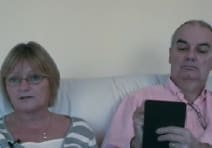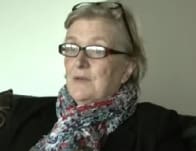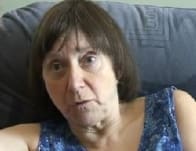
Interview 16 - Rheumatoid Arthritis
Diagnosed 1977 after shoulder pains. Diclofenac retard 100mg/day, Methotrexate 15mg/week & 5mg/day folic acid. Partial wrist & 2 finger joints replaced, thumb tendon repairs, 6 toe joint operations, ankle fusion & a back operation (not due to RA).
Retired physiotherapist, married with two adult children. Part private healthcare (latest surgery).









